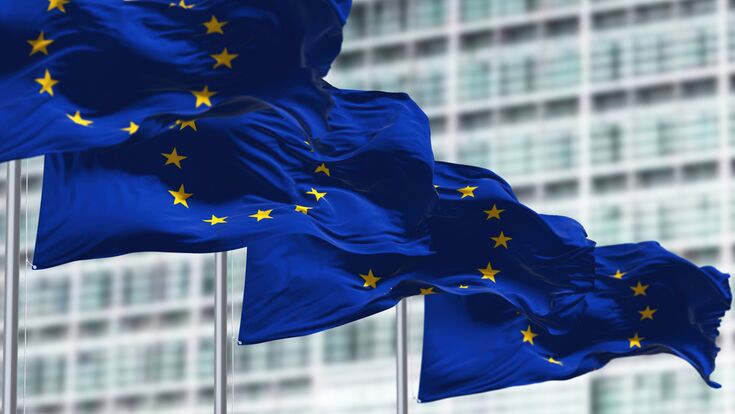EU Waste Framework Directive : EU Council's vote on Waste Management: Progress on textiles, setback on food waste

A step forward for textile waste management
Member States have voted to revise the Waste Framework Directive, a key legislative cornerstone for waste management across the EU. The revision, which follows the Commission's proposal of July 2023 and the Parliament's position of March 2024, includes binding reduction targets for food waste and introduces an extended producer responsibility (EPR) system for textiles.
The production of textile fibers has surged, doubling since 2000. Currently, 12.6 million tonnes of textile waste is generated annually in the EU. The new EPR schemes for textiles are part of a broader EU sustainability strategy aimed at holding brands financially accountable for the environmental impact of overproduction.
The Council's position enhances the Commission's proposal by ensuring that EPR schemes address not just waste management but also the financial repercussions of overproduction. EPR fees will be calculated based on the quantity of products placed on the market, acknowledging that only a third of clothes are discarded due to wear and tear. The Council also calls for these fees to take into account the aggressive marketing strategies that lead to overproduction and premature disposal of clothing.
Emily Macintosh, Senior Policy Officer for Textiles at the European Environmental Bureau (EEB), welcomed the outcome of the vote: “We need policies that address overproduction head-on, going beyond waste management and product design tweaks. Ultimately, the problem is that too many products end up as waste shortly after hitting the market, and the fees holding producers accountable must reflect this.”
Despite this progress, the Council postponed setting concrete waste management targets for textiles until 2028 and did not endorse a global accountability framework to support regions affected by used textile exports from the EU.
Related article: "The PPWR has the potential to revolutionise the way packaging is produced and managed"

Theresa Mörsen, Waste & Resources Policy Officer at Zero Waste Europe, states: “During the negotiations, a few Member States had the good sense to openly voice their intentions to end fast fashion. Honouring the long-established polluter pays principle means addressing the root cause of the waste crisis we’re in. We are delighted to see that the Council recognises a brand’s business strategy as a factor in fee contributions and looks at quantities and the extrinsic durability of products. This will make it easier to hold apparel giants accountable and work towards more sufficient business models. But it is unacceptable that the Presidency proposed extending the transposition period from 18 to 24 months. This extension means valuable time is lost, effectively giving polluters a free ride.”
Janek Vähk, Zero Pollution Policy Manager at Zero Waste Europe, emphasized the importance of covering the costs of textile waste in mixed municipal waste through EPR fees. He highlighted a Joint Research Centre study showing that 78% of post-consumer textile waste ends up incinerated or landfilled, causing significant environmental harm.
Inadequate action on food waste
However, the Council's approach to reducing food waste has been criticised for its lack of ambition. Despite clear evidence and persistent calls from civil society, the Council adopted the lowest range of targets proposed by the Commission: a 30% reduction in food waste at the consumption level and a 10% reduction in food processing and manufacturing by 2030, with 2020 as the base year.
The Council's position allows Member States significant flexibility regarding the baseline year and introduces uncertainties through correction factors for fluctuations in production volumes and tourism activities, which still need to be defined. Additionally, the issue of food waste at the primary production level remains unaddressed, with further action dependent on a study expected no earlier than the end of 2027. Environmental organizations have called for a 50% reduction in food loss and waste across the entire supply chain, aligning with commitments made under the 2018 revision of the Waste Framework Directive and Sustainable Development Goal 12.3.
Fynn Hauschke, Policy Officer on Circular Economy and Waste at the EEB, expressed disappointment at the Council’s decision: “Our governments missed another chance to tackle food waste from farm to fork. The low ambition level and neglect of losses at primary production undermine the efforts to solve Europe's food waste crisis. With climate change threatening food production and families struggling to put food on the table, evidence shows halving food waste is not just feasible but essential for reducing emission and saving costs."
ZWE also criticised the outcome on food waste: “I sincerely have to question the commitment of many Member States today to act decisively on climate change,” Theresa Mörsen said. “Not acting on food waste reduction contradicts the UN Sustainable Development Goals. The European Scientific Advisory Board on Climate Change has only recently warned against the huge impact food waste has on climate change.”

Moving forward
The Council's decisions mark an important step in the EU's legislative process to hold textile producers accountable under the 'polluter pays' principle. However, the Council's failure to set more ambitious targets for food waste and to comprehensively address textile waste highlights the need for continued advocacy and stronger legislative action.
Environmental organisations urge EU Member States to align themselves with the European Parliament's stronger position in the upcoming negotiations and to prioritise a substantial review during the new European mandate. Only through decisive action can the EU hope to address its waste management challenges and meet its sustainability goals.


